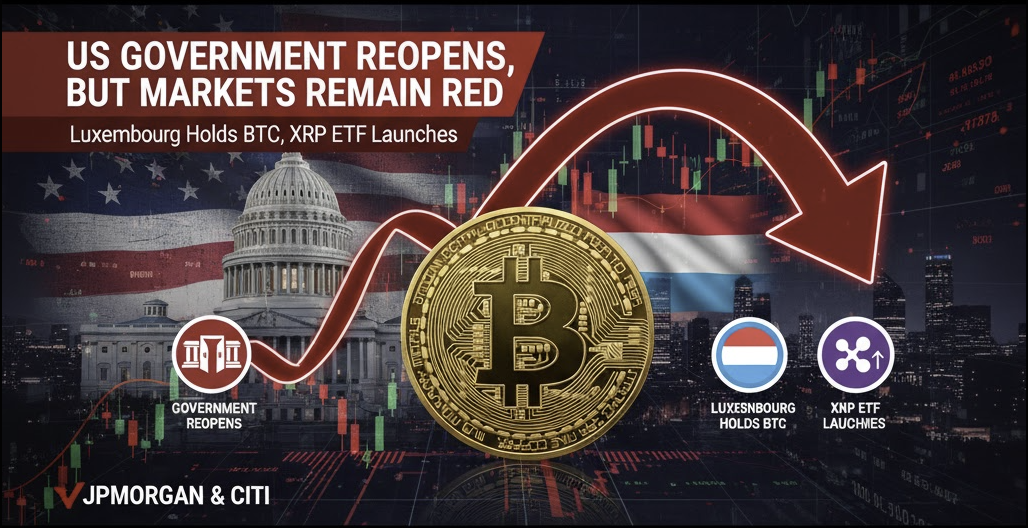U.S. Market Recap and Bitcoin’s Consolidation Above $100K
On Tuesday, May 27, all three major U.S. stock indices posted significant gains, led by the Nasdaq, which surged by 2.47%. Futures trading also pointed upward, reflecting short-term optimism. Commodities followed suit, with gold climbing to $3,313/oz and oil rising to $61.38 per barrel.

Meanwhile, Bitcoin maintained its position between $108,000 and $109,000, continuing a period of sideways movement near all-time highs. Altcoins showed mixed performance, with some gaining while others lagged. The total crypto market capitalization stood at $3.552 trillion, highlighting growing investor resilience in the face of macroeconomic uncertainties.

ETF Inflows Signal Growing Institutional Confidence
U.S. Bitcoin spot ETFs recorded net inflows totaling $385.4 million on the same day. While some ETFs such as FBTC, ARKB, and GBTC experienced outflows, the majority of capital flowed into BlackRock's IBIT, maintaining its dominance. Ether spot ETFs also attracted $38.8 million, indicating rising investor interest in Ethereum-based products alongside Bitcoin.

These consistent ETF inflows underscore a broader shift toward institutional adoption, particularly as traditional investors seek stable, long-term exposure to digital assets amid inflation concerns and global financial turbulence.
Trump Reasserts Tariff Power and Praises EU Negotiation Efforts
Former President Donald Trump reiterated his intent to enforce aggressive trade measures unless the U.S. secures "fair deals." Speaking about the proposed 50% tariff on European Union imports, Trump noted that the EU had responded promptly and expressed willingness to negotiate. He framed this as a positive development and called on the EU to emulate China’s recent market-opening initiatives to ensure mutual economic success.
Trump’s comments reinforced his longstanding view that America must leverage trade as a tool for global competitiveness. While the markets await concrete negotiation outcomes, his rhetoric has already shifted geopolitical dynamics and influenced investor sentiment.

Corporations Seek Legal Loopholes to Avoid Tariffs
As Trump renews his tariff policies, many multinational corporations are turning to a known workaround—America’s "first sale rule"—to legally minimize import duties. According to CNBC, companies like Moncler and Traeger are leveraging this legal provision to calculate import taxes based on the manufacturer’s original sale price rather than the intermediary’s markup.
Though entirely legal, this strategy undermines U.S. efforts to boost domestic production and increase tariff revenues. It also raises questions about the effectiveness of trade policies if companies continue to find pathways to legally sidestep them.
Japan Loses Global Creditor Crown After 34 Years
For the first time in over three decades, Japan is no longer the world’s largest creditor nation, ceding the title to Germany. Despite holding record foreign assets, Japan’s ultraloose monetary policy and weakening yen have eroded its global financial standing.

Germany, meanwhile, surged ahead due to a strong euro and robust export-driven economy. Japan’s aggressive money printing and near-zero interest rates, initially aimed at stimulating domestic growth, have instead encouraged capital outflows—showcasing how expansionary monetary policy can become a liability over time.
This development highlights vulnerabilities in global financial systems reliant on perpetual debt and fiat expansion, reinforcing Bitcoin's appeal as a decentralized, deflationary hedge.
Saylor Rejects On-Chain Proof-of-Reserves as Security Risk
MicroStrategy Chairman Michael Saylor voiced strong opposition to on-chain proof-of-reserves, calling it a serious security liability. He likened it to publishing one’s children’s home addresses and phone numbers in the name of safety—an obviously flawed logic.
Saylor emphasized that disclosing wallet addresses publicly allows for transaction tracking, undermining long-term security for both institutions and individuals. He argued that true financial transparency should come through Big Four-audited debt and asset disclosures, not through public wallet balances.
While some in the crypto community advocate for more transparency, especially following FTX’s collapse, Saylor insists that security and investor trust should be prioritized—an assertion that continues to stir debate in the industry.
Trump Media Group Raises $2.5 Billion to Buy Bitcoin
In a headline-grabbing move, Trump Media and Technology Group (operator of Truth Social and Truth+) raised $2.5 billion from 50 institutional investors through common stock and zero-interest convertible bonds to acquire Bitcoin.

CEO Devin Nunes emphasized that Bitcoin would play a critical role in the company's operations, including payments, token issuance, and anti-discrimination measures in financial services. This marks one of the largest BTC investments by a publicly traded U.S. firm.
Meanwhile, Cantor Fitzgerald launched a $2 billion Bitcoin-backed lending platform, starting with institutional borrowers FalconX and Maple Finance. Though Commerce Secretary Howard Lutnick officially divested from Cantor Fitzgerald, political opponents argue that the administration’s crypto support may be entangled with personal financial interests.
Bitcoin Reserve Legislation Gains Momentum Amid Skepticism
Senator Cynthia Lummis confirmed that President Trump supports the proposed Bitcoin Reserve Act, which, if passed, would mandate the U.S. Treasury to acquire up to 1 million BTC over five years and hold them in a strategic reserve for at least 20 years.
While this would represent a monumental shift in U.S. fiscal strategy, critics argue that such legislation could serve special interests, citing potential conflicts of interest between Trump's administration and affiliated crypto ventures. The bill is expected to face significant opposition in Congress, despite growing institutional support.
Global Adoption Expands as Companies and Nations Join the Bitcoin Movement
Circle has filed its IPO documents with the New York Stock Exchange, signaling the firm’s continued ambitions in regulated digital finance. In parallel, Remixpoint in Japan approved a $7 million BTC acquisition, and France’s Blockchain Group issued $63.3 million in BTC-denominated convertible bonds to buy up to 590 BTC.
Strive Asset Management plans to raise $1.5 billion to purchase Bitcoin without leverage, and Swiss luxury watchmaker Franck Muller launched a Solana-themed limited series with QR-linked wallets.
Thailand is integrating crypto into tourism, allowing visitors to spend USDT and USDC via credit cards, while retailers receive payment in local currency to reduce FX risk. These developments signal crypto’s growing integration into mainstream financial infrastructure.
Conclusion
While Bitcoin continues to consolidate above the $100,000 mark, the macro environment is rapidly evolving. With President Trump reiterating his crypto-friendly stance, new legislation gaining traction, and institutional flows remaining strong, Bitcoin’s role as a hedge against policy risk and inflation is becoming more pronounced. Whether the U.S. adopts a formal Bitcoin reserve strategy or not, the convergence of trade tensions, monetary policy fragility, and rising adoption continues to validate crypto’s long-term narrative.


.png)





